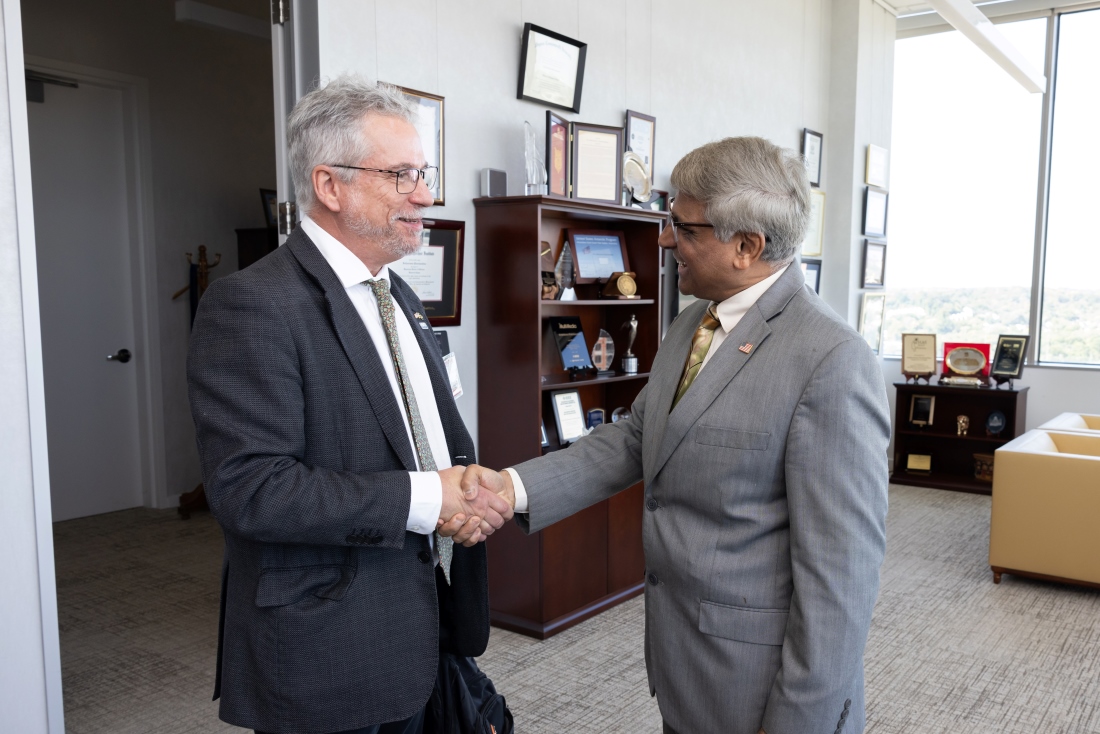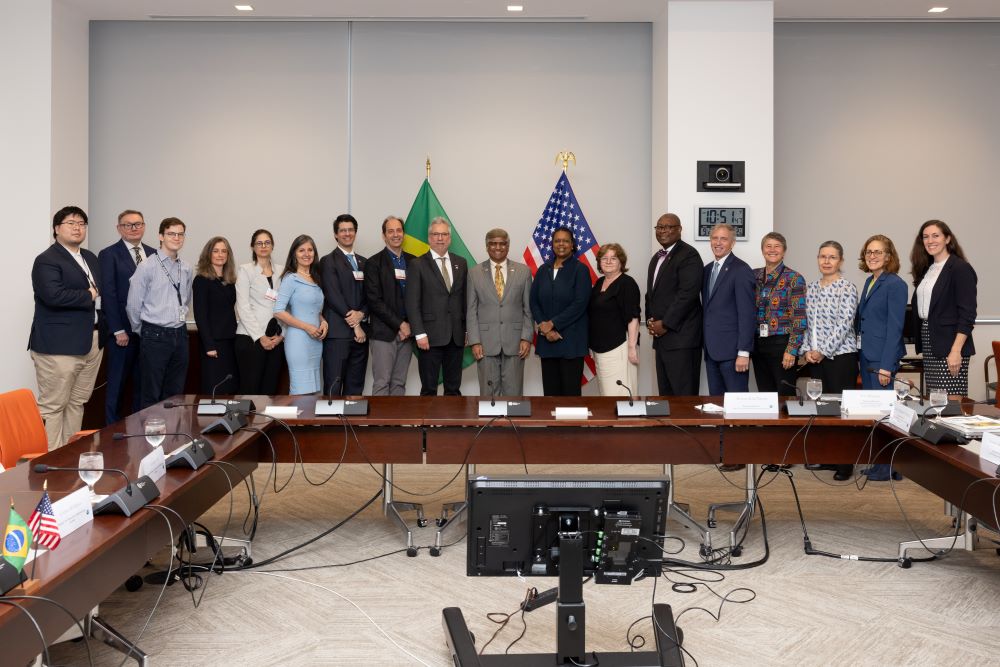

Marcio de Castro and Sethuraman Panchanathan (photo: Charlotte Geary/NSF)
The purpose of the meeting was to align strategies and discuss ways of increasing scientific collaboration among researchers supported by the two institutions.
The purpose of the meeting was to align strategies and discuss ways of increasing scientific collaboration among researchers supported by the two institutions.

Marcio de Castro and Sethuraman Panchanathan (photo: Charlotte Geary/NSF)
Agência FAPESP – Representatives of FAPESP visited leaders of the United States National Science Foundation (NSF) in Alexandria, Virginia, on September 19. The purpose of the meeting was to align strategies and discuss ways of increasing scientific collaboration among researchers supported by the two institutions, which signed a memorandum of understanding (MoU) in 2011 to promote cooperation in areas of mutual interest.
The FAPESP delegation comprised Scientific Director Marcio de Castro and Research Collaboration Manager Connie McManus, as well as advisors Niels Olsen, Leandro Colli and Carolina Costa.
“The visit was strategic for the relationship between FAPESP and NSF. We were welcomed by NSF Director Sethuraman Panchanathan and representatives of the agency’s directorates. We discussed ongoing projects and new partnership possibilities aiming at integration between the scientific communities in São Paulo and the U.S.,” Castro said.
The areas of common interest include STEM (science, technology, engineering and mathematics) education, geosciences, electronic data interchange (EDI), and biodiversity. In the latter, the two institutions have a history of collaboration via Biodiversity on a Changing Planet, a program created by NSF in partnership with FAPESP and with research funding agencies in China (NSFC) and South Africa (NRF).
Another area in which they mean to collaborate more is computer science and information engineering. NSF is responsible for allocating 80% of the federal funding for computer science in the U.S. The priorities for collaboration in this area encompass artificial intelligence, human-computer interaction, connected health, and information security, where NSF established its first collaboration with FAPESP.
“We’ve agreed to hold a joint workshop on March 2025 with 30 researchers each from the U.S. and São Paulo to discuss themes for research collaboration in this area, to be covered by a call for proposals that will be issued in due course,” McManus said.
“The welcome afforded by the Director of NSF to FAPESP’s delegation, which is a subnational agency, demonstrates the importance of the partnership and the institution’s commitment to it.”

Photo: Charlotte Geary/NSF
Republish
The Agency FAPESP licenses news via Creative Commons (CC-BY-NC-ND) so that they can be republished free of charge and in a simple way by other digital or printed vehicles. Agência FAPESP must be credited as the source of the content being republished and the name of the reporter (if any) must be attributed. Using the HMTL button below allows compliance with these rules, detailed in Digital Republishing Policy FAPESP.





